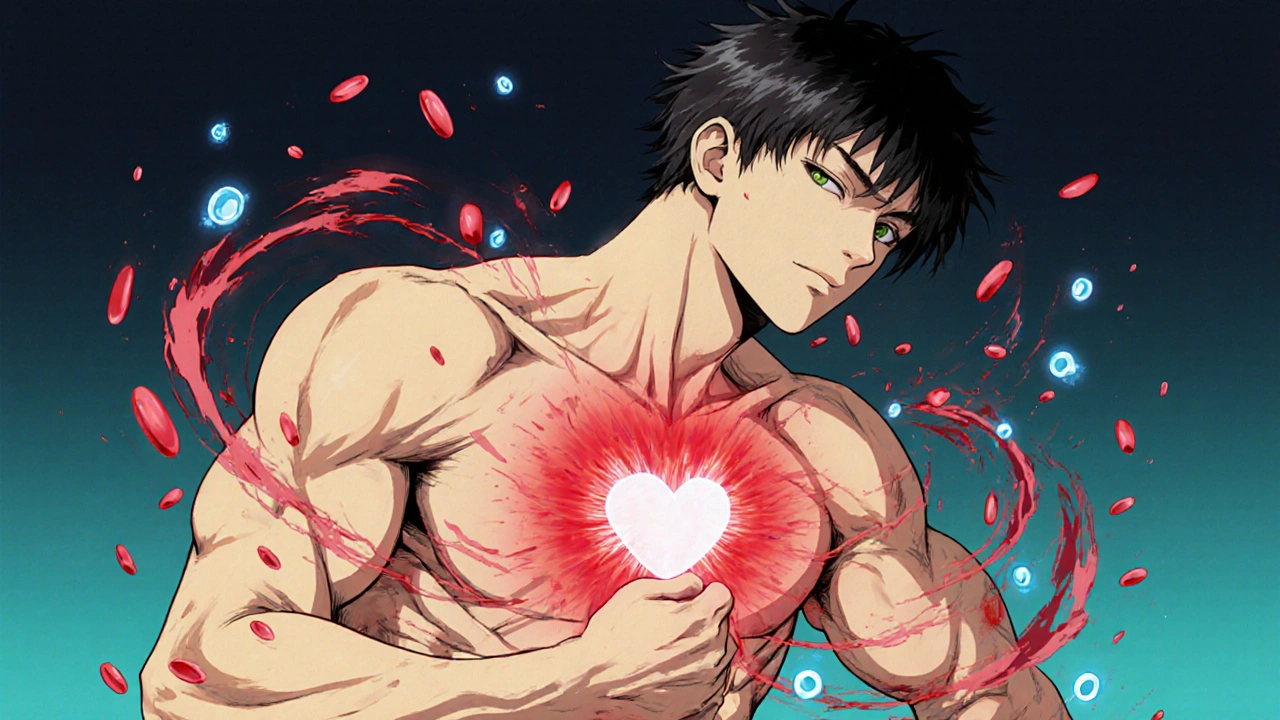Learn how iron, B12, and folate deficiencies trigger anemia that strains the heart, discover key symptoms, diet tips, and when to seek medical help.
Iron Deficiency: Causes, Symptoms, and How to Fix It
When your body doesn’t have enough iron, a mineral essential for making hemoglobin, the protein in red blood cells that carries oxygen. Also known as iron-deficiency anemia, it’s one of the most common nutrient shortages worldwide, especially in women, children, and older adults. Without enough iron, your cells don’t get the oxygen they need to function. That’s why people with low iron often feel tired all the time, even after a full night’s sleep.
Iron deficiency doesn’t just mean you’re tired. It can cause cold hands and feet, brittle nails, dizziness, and even strange cravings for ice or dirt—a condition called pica. Your body loses iron through blood loss (like heavy periods or stomach ulcers), doesn’t absorb it well (due to celiac disease or gastric bypass), or just doesn’t get enough from food. Vegetarians and vegans are at higher risk because plant-based iron (non-heme) is harder for your body to use than the kind in meat (heme iron). And here’s the thing: many people take iron pills without knowing why their levels are low. That’s like putting gas in a car with a leaky tank.
Testing for iron deficiency isn’t just about checking hemoglobin. Doctors look at ferritin, a protein that stores iron in your body—low ferritin means your reserves are empty, even if your hemoglobin still looks okay. They also check hemoglobin, the oxygen-carrying molecule in red blood cells, and sometimes transferrin saturation. If you’ve been told you’re "just anemic" but no one explained why, you’re not alone. Most people don’t realize that fixing iron deficiency isn’t just about popping a pill. It’s about finding the root cause.
Some people feel better after taking iron supplements, but others don’t. Why? Because the wrong type of iron, the wrong dose, or taking it with coffee or calcium can block absorption. Iron works best on an empty stomach with vitamin C—like orange juice or a supplement. But if you have stomach issues, your doctor might recommend a slower-release form or even an IV drip. And if your iron keeps dropping despite supplements, you might need tests for internal bleeding, thyroid problems, or chronic inflammation.
The posts below cover real cases and practical advice. You’ll find comparisons of iron supplements, how diet affects absorption, what to do if pills make you sick, and how to tell if your treatment is working. Some stories are about women with heavy periods, others about seniors with poor appetite, and a few about kids with picky eating. There’s no one-size-fits-all fix. But with the right info, you can stop feeling drained and start feeling like yourself again.

